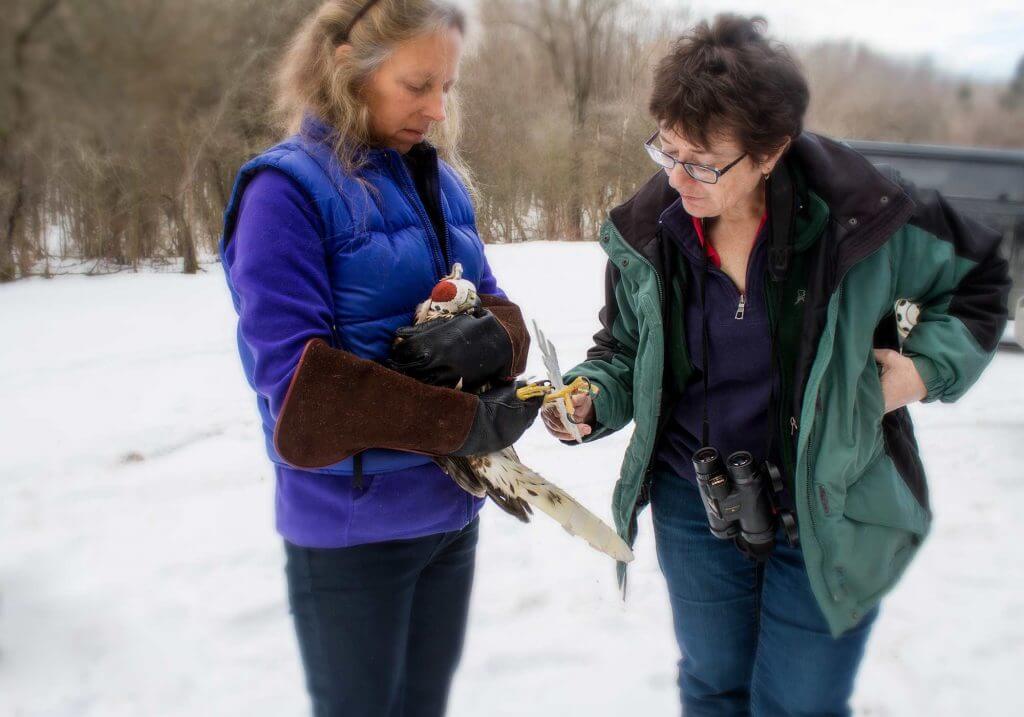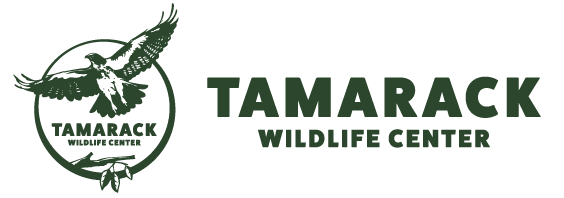Help! I Found an Injured Wild Animal
Tamarack’s helpline volunteers are just a call away when you find an injured or orphaned wild animal in northwestern Pennsylvania. You can reach us daily at the following number:
814-763-2574

Admissions are by appointment only, 7 days a week.
- Found wildlife in need elsewhere in Pennsylvania?
Visit http://pawr.com/ to find a licensed rehabilitator by county! - Found wildlife in need elsewhere in the United States?
Visit https://ahnow.org/ to find a licensed rehabilitator closest to you!
Signs an animal needs your help:
- Injury or illness (broken bones, blood, mange, flies)
- Abnormal behavior (walking in circles, approaching humans or pets, unable to walk/fly properly)
- Contact with a domestic dog or cat’s mouth
- An adult animal who cannot evade capture
- Known orphan
Many wildlife behaviors can be misinterpreted. An animal may not be orphaned or need your help. Contact a licensed wildlife rehabilitator before attempting to rescue an animal unless it is in immediate danger.
You found a wild animal that needs help?
Now what do you do?

Stop! Before attempting to handle or capture a wild animal, consider everyone’s safety!
- Never attempt to capture a dangerous animal (adult large mammals, herons, eagles, venomous snakes) without first consulting a professional.
- Contact a wildlife professional for advice on how to safely contain an animal to protect yourself from claws, talons, beaks, and teeth.
- Wear gloves when handling all wild animals!
- Know what animals are likely to carry rabies in your area. In Pennsylvania these species include bats, raccoons, skunks, foxes, coyotes, groundhogs, and feral cats. Never handle these animal without gloves or before contacting a wildlife professional. Exposure to the animal’s saliva through bites, scratches, or bottle feeding puts you, your pets, and your family at risk for contracting this deadly disease.
- If you already have an animal in your possession- ensure the container is secured with tape or weights and do not open the box unless advised by a wildlife professional.
Your decisions can make the difference between life and death for a rescued wild animal!
- Never provide food or water to an injured or orphaned wild animal unless advised by a licensed rehabilitator. Attempting to feed an injured or dehydrated wild animal can cause serious complications. Improper food/milk or feeding techniques can cause pneumonia, refeeding syndrome, gastrointestinal diseases, and other life-threatening conditions.
- Warm, dark, and quiet rest are the most important things you can provide. Stress can kill wildlife quickly! Never attempt to soothe an adult or juvenile animal with petting, cuddling, or songs. Humans and domestic pets look like predators to most wild animals.
When you are ready to transport the animal to a licensed wildlife rehabilitation facility, follow these tips!
- Ensure that the drive is as calm and quiet as possible. Do not play music, do not smoke, limit talking, and secure the animals container during the ride.
- The animal should be transported securely within the body of the vehicle. Do not transport the animal in the trunk or the bed of a truck.
- Do not open the animal’s container in the car. It can be extremely dangerous if the animal escapes in a moving vehicle. Wait until you arrive at the rehabilitation facility and have their personnel assist you.
- Thank you for providing the transportation to get this animal the help it needs. Rehabilitators have limited resources of time, money, and volunteers. By transporting this animal, you have saved them all three!
